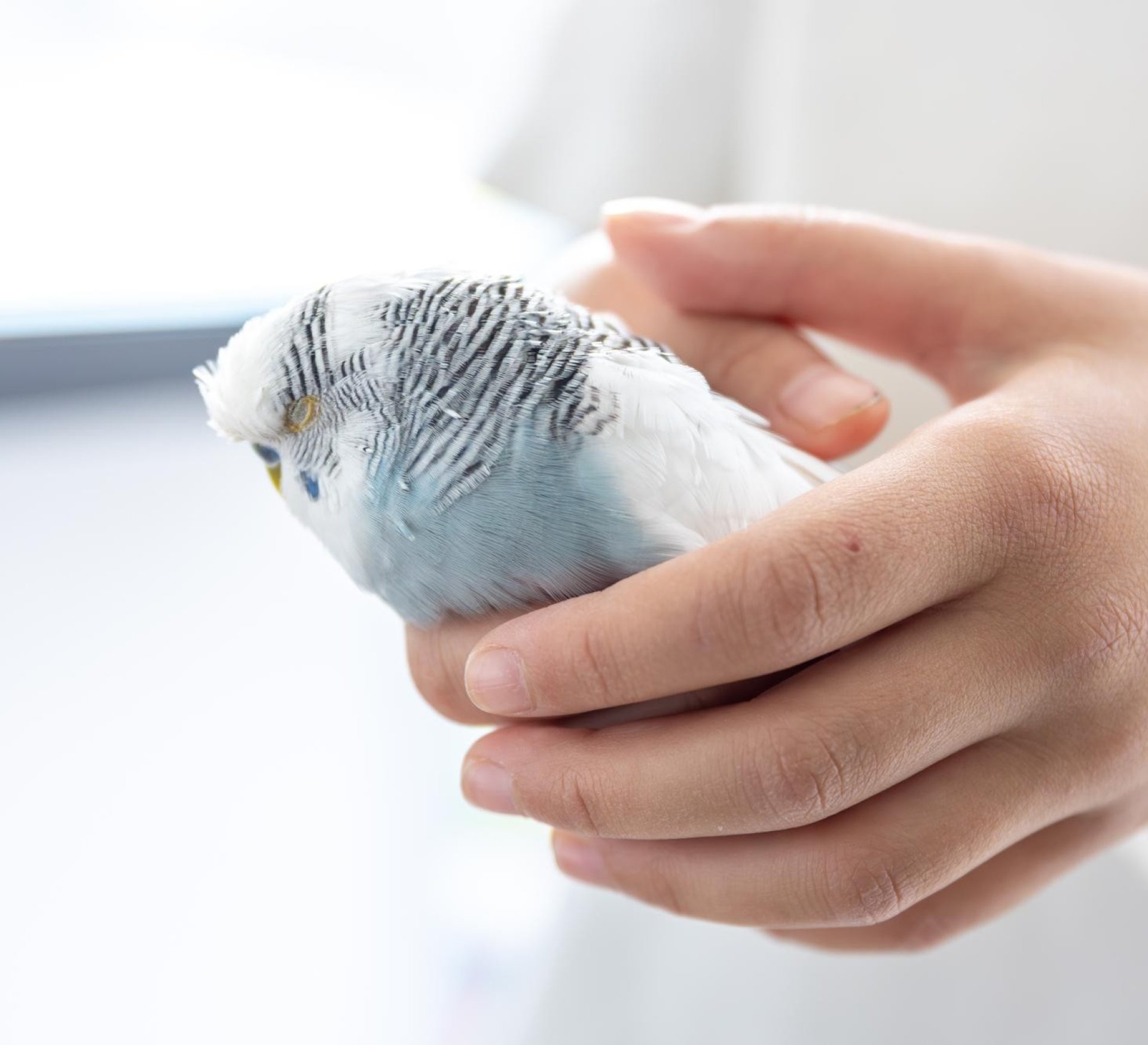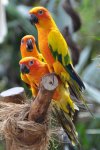Common Bird Diseases and How to Keep Your Pet Bird Healthy

Birds are intelligent, charming, and affectionate pets. However, many owners may not realize that bird diseases are quite common, and if neglected, they can lead to serious health issues or even death.
In this article, U.LEK introduces some of the most common diseases found in pet birds such as Macaw, African Grey, Lovebird, Forpus, and Budgerigar, along with their symptoms and prevention tips so your bird can stay healthy and live happily for years to come.
1. Respiratory Disease
Description:
This condition is caused by bacteria or fungi (such as Aspergillus or Chlamydia psittaci), often due to dusty cages, damp food, or poor air circulation.
Symptoms:
- Noisy or labored breathing
- Sneezing, nasal discharge, or crust around the nostrils
- Fluffed feathers, lethargy, or reduced vocalization
Susceptible species:
African Grey Parrot: Prone to dust-related respiratory problems due to long nasal passages.
Macaw: Complex air sacs make them vulnerable to fungal infections when ventilation is poor.
Prevention:
- Clean the cage daily.
- Avoid dusty bedding materials.
- Allow your bird to bathe or mist regularly to reduce dust.
2. PBFD - Psittacine Beak and Feather Disease
Description:
A viral disease that damages feathers and beaks, commonly found in psittacine birds such as Lovebirds, Cockatoos, and African Greys. It spreads easily through feathers and droppings.
Symptoms:
- Feather loss, especially around the neck and chest
- Deformed or colorless new feathers
- Beak cracking or overgrowth
- Weak immune system and frequent secondary infections
Susceptible species:
Lovebird: Most commonly affected species
Cockatoo: Tends to show severe symptoms
African Grey: Highly sensitive to this virus
Prevention:
- Quarantine new birds for at least 30 days before introducing them to others.
- Avoid purchasing birds from unverified or unclean sources.
- Regularly disinfect cages and accessories.
3. Diarrhea / Enteritis
Description:
Caused by spoiled food, dirty water, or intestinal bacteria such as E. coli and Salmonella.
Symptoms:
- Watery droppings or abnormal colors (green, white)
- Wet feathers around the vent area
- Lethargy and loss of appetite
Susceptible species:
Budgerigar (Parakeet): Highly sensitive digestion; dirty water or food can easily cause diarrhea.
Lovebird and Forpus: Prone to digestive upset when diet changes too suddenly.
Macaw: May develop intestinal inflammation after eating acidic or fermented fruit.
Prevention:
- Replace food and water daily
- Avoid fermented fruits or leftover food
- Provide clean grains like millet, oats, and wheat
- Supplement with probiotics to support gut balance
4. Nutritional Deficiency
Description:
Occurs when birds are fed an unbalanced diet such as seeds only, without vegetables, fruits, or supplements.
Symptoms:
- Dull or discolored feathers, or feather loss
- Cracked feet or skin lesions
- Weakness, low activity, or reduced vocalization
Susceptible species:
Budgerigar: Often deficient in Vitamin A due to seed-only diets.
Lovebird and Cockatiel: Prone to Vitamin E and calcium deficiencies.
African Grey: Highly prone to calcium deficiency, leading to brittle bones.
Prevention:
- Provide a balanced diet with vegetables (carrot, kale, spinach) and fruits (apple, papaya).
- Use high-quality formulated bird food with complete vitamins and minerals.
- Add calcium or multivitamin supplements under veterinary advice.
5. Obesity in Birds
Description:
Caused by excessive high-fat diets (such as sunflower seeds and nuts) combined with lack of physical activity.
Symptoms:
- Difficulty flying or shortness of breath
- Fat deposits on the abdomen or chest
- Lethargy and reduced playfulness
Susceptible species:
Cockatiel and Lovebird: Love sunflower seeds and are prone to obesity.
Macaw: Eats many nuts; if confined, tends to gain weight easily.
African Grey: Prone to fatty liver disease when inactive.
Prevention:
- Limit high-fat foods.
- Encourage daily activity, climbing ladders, ropes, or playing with toys.
- Provide enrichment toys to promote movement and mental stimulation.
Tips for Keeping Birds Disease-Free
Healthy birds start with clean living conditions and proper nutrition.
Clean cages and feeding bowls every day. Observe your bird's behavior if it seems quiet, fluffed, or inactive, consult a veterinarian immediately.
Annual health check-ups help detect problems early. Most importantly, feed your bird with high-quality food that contains essential vitamins and nutrients to boost immunity and overall health.
U.LEK's Recommendation
U.LEK Pet Food creates natural bird food made from grains, and plant-based protein, with specialized formulas for different species such as Lovebird, Cockatiel, Budgerigar, Macaw, and African Grey.
Each blend is enriched with vitamins and minerals to support feather health, immunity, and long-term well-being.
"Because a bird's good health begins with quality food and the loving care of its owner every single day."


